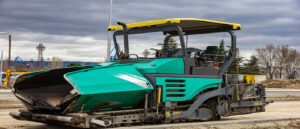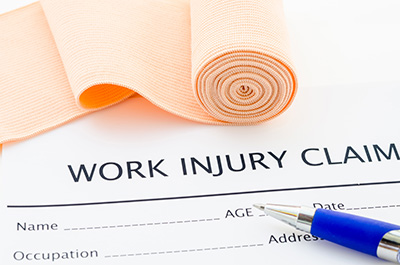Many occupations require the use of heavy machinery to handle difficult tasks, such as creating roads and harvesting fresh produce. People who work within the agricultural, manufacturing, construction, trucking and mining industries tend to be at higher risk for experiencing injuries due to their use of heavy equipment.
On any given day, bulldozers, forklifts, cranes and paving machines are used on work sites, and it’s imperative that employees are trained to follow the proper safety protocols for preventing injuries from massive vehicles and equipment.
Sadly, even following OSHA regulations isn’t always enough to prevent a workplace accident. But fortunately, workers’ compensation can make it easier to recover both physically and financially after a tragic accident.
What is the impact of a heavy equipment injury at work?
The consequences of being involved in a machinery accident depend greatly upon how it happens.
Vehicle rollovers and collisions can lead to severe injury, including:
- Traumatic brain injuries
- Crushed limbs
- Amputations
- Broken bones
- Spinal injuries
- Back injuries
- Paralysis
- Psychological injuries
- Death
Additionally, people who work with heavy machines may also experience burns if their bodies come in contact with hot engines or areas with friction built up from moving parts. Overexertion injuries to muscles are also common due to workers needing to sit in the same position for prolonged periods of time.
For someone who uses their body to perform their job duties, even minor injuries can have substantial consequences, including a loss of income that impacts their ability to care for themself and their family.
If you experience a permanent or total disability after a work accident, then a workers’ compensation claim offers the best potential for managing financial hardships during your recovery.
How Alabama workers’ compensation benefits can help after an injury
Workers’ compensation is designed to provide benefits to injured workers for the following:
- Medical care. All necessary medical care, equipment and supplies are covered under workers’ compensation, including doctor and hospital visits, medications, surgeries, rehabilitation and other items necessary for your treatment, such as crutches or a wheelchair.
- Lost wages. Injured workers are entitled to benefits to cover lost wages while they recover from their injuries. This amount is typically two-thirds of your average weekly wage and will be based on your disability, which will fall into 1 of 4 basic categories:
Temporary Partial Disability, Temporary Total Disability, Permanent Partial Disability and Permanent Total Disability.
If you’re able to work in a limited capacity following your initial recovery, then your benefits will be adjusted to accommodate the difference between your former and new wages. - Death benefits. These benefits are paid to certain dependents if a worker dies of an on-the-job injury. They include coverage for funeral expenses and lost income.
In Alabama, most employers with 5 or more workers are required to carry workers’ compensation insurance to ensure that people who are injured on their job site have funds available to manage their needs.
As an employee, you should be eligible for these benefits if your machinery accident occurred while you were working for your employer and performing your job duties or doing an activity related to your work. Keep in mind that an injury that could have happened anywhere may not be covered. For instance, having a heart attack at work would not typically fall within the boundaries of workers’ comp. But, having your arm crushed by heavy equipment would be considered a work-related injury.
Step-by-step guide to filing an Alabama workers’ compensation claim
Were you hurt on the job? Learn the steps you need to take after a work injury in Alabama to file a successful workers’ comp claim and get maximum compensation.
Wearable technology and the future of heavy equipment safety
The landscape of heavy equipment safety is constantly evolving. While wearing proper Personal Protective Equipment (PPE) and following safety protocols remain essential, advancements in wearable technology offer a glimpse into a future with even fewer accidents.
Imagine construction workers with smart vests that vibrate or display warnings when entering blind spots around heavy machinery. Or machine operators wearing haptic feedback gloves that alert them of potential hazards or limitations with the equipment they control.
These are just a few examples of how wearable technology has the potential to revolutionize heavy equipment safety.
Steps to take after a work injury in Alabama
Take the following steps after an on-the-job injury in Alabama to get workers’ compensation benefits:
- Seek medical care. Always seek medical care as soon as possible after an accident, even if you don’t initially feel injured. Doing so will ensure that any injuries are treated and documented, which will make it easier to connect them to your job and get compensation.
- Notify your employer. According to Alabama law, you have 5 days to report your injury to your employer. Although heavy equipment accidents tend to attract the attention of your employer, you want to avoid assuming that they know about the injury. Instead, you’ll want to provide them with written notice of your injury to begin creating a paper trail that documents you giving notice. If you are physically or mentally incapacitated during this time and are unable to provide proper notice, then you may have up to 90 days to notify your employer in certain limited situations.
- Verify your employer files the correct paperwork. Upon receiving your notice, your employer then has the responsibility to file a First Report of Injury Form with their insurance carrier. This form provides information about your injury along with other details, such as your current wages. Using this information, the insurance company can then begin processing the claim to come up with a possible settlement offer.
- Contact an attorney. If you need help with your claim or your claim is denied, contact an experienced workers’ compensation attorney who can help protect your rights.
Reasons for delay in workers’ compensation cases
Birmingham work injury attorney discusses key factors causing delays in Alabama worker’s comp case and how they resolve these issues for their clients.
How can a workers’ compensation attorney help with a claim?
Due to the serious expenses associated with construction injuries involving heavy equipment, it’s not uncommon for an insurance carrier to deny an initial claim. There is also the possibility that the insurance company might offer you a settlement that is too low for managing the true costs of your injuries, and you might be pressured to settle before you understand the complete scope of what a long-term disability entails.
A workers’ comp attorney can handle all of the insurance company negotiations, and they’ll also be able to help you appeal a denial of your claim. Navigating the process of handling your workers’ comp claim gets complicated, especially when you may already be mentally and physically drained from recovering from your injury.
How understanding the different types of workers’ compensation benefits can help you avoid drowning in debt
There are various types of workers’ compensation benefits and knowing what you may be entitled to can save you money in the long run.
Contact an Alabama workers’ compensation attorney
If you’ve been injured on the job in Alabama, you likely have a legal right to compensation. The experienced workers’ compensation attorneys at Nomberg Law Firm can assist you with filing your claim or appealing the decision if your claim is denied. Our attorneys have extensive experience fighting for injured Alabama workers to get them the money they deserve.
About Nomberg Law Firm
Nomberg Law Firm has been helping people in Alabama recover fair compensation for their injuries since 1967. We know our clients are hard-working men and women who deserve the best representation possible. That’s why we’ve dedicated our entire practice to fighting for your rights after an injury.
The small size of our family-owned firm allows us to focus on our client’s needs and enables us to provide individualized assistance and personal attention that larger firms simply can’t match.



